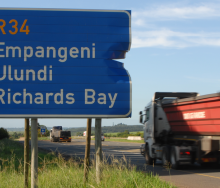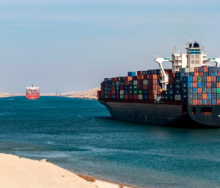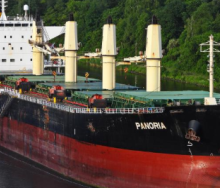A strong appeal for more consideration and care of cross-border truck drivers was made by Mbahupu Tjivikua, CEO of the Walvis Bay Corridor Group (WBCG), at a webinar last week looking at the impact of Covid-19 on logistics and supply.
Although the impact of the coronavirus is well known, the plight of people on the ground ensuring goods are still distributed to markets is often overlooked.
Citing long delays at borders because of stringent testing regimes by countries such as Botswana, Tjivikua said driver fatigue stemming from long waiting times for test results was taking a heavy psychological toll on long-distance drivers.
“The mental health of drivers and all others in the logistics and supply chain is negatively impacted.”
Working among colleagues that either have the virus or are dying from the virus, drivers fear that that they may contract the killer flu.
In addition, truck drivers and frontline staff were heavily stigmatised and isolated in unhealthy and often overcrowded quarantine facilities, he added.
According to Tjivikua, in worst-case scenarios 200 to 300 drivers congregate at a certain location at any given time, waiting for authorities to report back on tests - with inadequate or no facilities to prevent crowding at border crossings.
Moreover, in many instances there is little or no social distancing in areas where drivers have to wait before they can proceed into another country.
It’s also not the first time that sub-Saharan governments have been made aware of the irony of measures to which drivers are subjected due to ill-considered Covid-curbing measures.
During stricter phases of the various lockdown procedures across the region, Mike Fitzmaurice of the Federation of East and Southern African Road Transport Associations (Fesarta) regularly lamented the poor decision making of authorities which resulted in drivers being detained for a week or sometimes more.
A case in point was Zambia’s Kazangula border where drivers kept crossing the Zambezi into Botswana and having to wait for test results.
It led to an intolerable situation as authorities in Gaborone did not have the means or medical capacity to keep pace with mounting test requirements of trucks pouring across the Copperbelt crossing.
Fitzmaurice at the time called it a human rights travesty in the making.
Tjivikua recalled that more recently the WBCG had found that many countries in the region simply did not have the ability to apply adequate testing procedures, or house drivers in proper quarantine facilities.
He said whereas previously it had taken about three days for a truck to complete a trip from Walvis Bay to Johannesburg on the Trans-Kalahari Corridor, it now took up to seven days.













